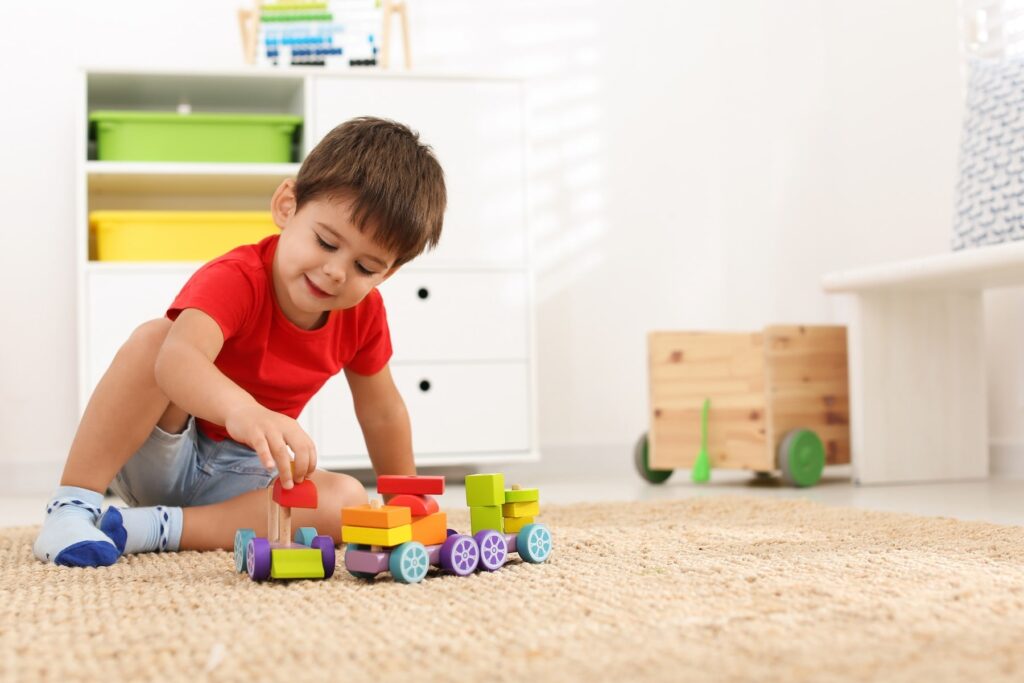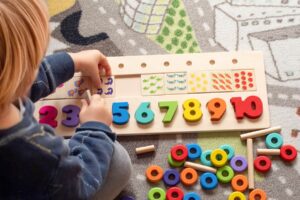The early years of a child’s life are filled with rapid development and milestones, from taking first steps to saying first words. By the age of two, most children are beginning to explore their world with curiosity, engage with others, and develop basic communication skills. However developmental differences in a child showing signs of autism may start to become noticeable around this age, particularly in areas related to social interaction, communication, and behavior.
These differences can be early signs of autism spectrum disorder (ASD). Understanding what to look for can help parents and caregivers identify potential concerns and seek early intervention, which is crucial for supporting a child’s development.
Understanding the Signs of Autism in Toddlers
Autism spectrum disorder is a developmental condition that affects how a child communicates, interacts with others, and experiences the world. It’s called a “spectrum” because the symptoms and their severity can vary widely from one child to another. While every child with autism is unique, there are some common signs that may be noticeable around the age of two.
Here are some of the most common signs of autism that may present in a young child.
Delayed Speech and Language Development
What to Look For
By age two, most children are beginning to say simple words or phrases and understand basic instructions. A potential sign of autism is a noticeable delay in speech and language development. Your child may not be using words or may be speaking less than their peers. They may also have difficulty understanding or responding to spoken language.
Red Flags
Not responding to their name, not using gestures like pointing or waving, and limited or no use of words or phrases by 24 months.
Limited Social Interaction
What to Look For
A typical two-year-old is usually interested in interacting with others, whether it’s playing alongside peers, making eye contact with caregivers, or showing affection. Children with autism may show limited interest in social interactions. They may not make eye contact, may seem indifferent to the presence of others, or may not engage in typical back-and-forth play.
Red Flags
Avoiding eye contact, not showing interest in playing with others, not responding to smiles or other social cues, and not seeking comfort or closeness from caregivers.
Repetitive Behaviors and Restricted Interests
What to Look For
Repetitive behaviors, such as hand-flapping, rocking, or repeating the same actions over and over, are common signs of autism. Additionally, a two-year-old with autism may have very specific interests or engage in play that seems repetitive or focused on a particular object or activity.
Red Flags
Repeating the same actions or sounds repeatedly, fixating on a specific toy or object, getting upset with changes in routine, and lining up toys or objects in a specific order.
Unusual Reactions to Sensory Input
What to Look For
Children with autism often have sensory sensitivities, meaning they may overreact or underreact to sensory stimuli like sounds, lights, textures, or tastes. A two-year-old with autism may be extremely bothered by certain sounds, avoid certain textures (like sand or certain fabrics), or be unusually sensitive to bright lights.
Red Flags
Overreacting to loud noises, being highly sensitive to textures in clothing or food, avoiding physical contact like hugs or cuddling, or seeming indifferent to pain or temperature changes.
Lack of Pretend Play
What to Look For
By the age of two, most children start to engage in pretend play, such as pretending to feed a doll or using objects as if they were something else (like a block as a phone). Children with autism may show little interest in imaginative play or may use toys in unusual ways.
Red Flags
Not engaging in pretend play, using toys only in repetitive ways (like spinning wheels on a toy car without playing with the car as a whole), and not imitating others’ actions or words during play.
Difficulty with Emotional Responses
What to Look For
Emotional responses in children with autism can be different from their peers. They may have difficulty understanding and expressing emotions appropriately. A two-year-old with autism might not respond to others’ emotions or may react strongly to situations that seem minor to others.
Red Flags
Not showing typical signs of empathy, such as comforting someone who is upset, or having emotional reactions that seem disproportionate to the situation (e.g., extreme distress over a minor change).
What to Do If You Notice Signs of Autism
If you observe any of these signs in your two-year-old, it’s important to seek guidance from a healthcare professional. Early intervention can make a significant difference in your child’s development. Here are steps you can take:
- Talk to Your Pediatrician: Share your observations with your child’s pediatrician. They can provide a developmental screening and, if necessary, refer you to specialists for a more comprehensive evaluation.
- Request a Developmental Assessment: A thorough assessment by a developmental pediatrician, psychologist, or other specialists experienced in autism can help determine whether your child has autism and what interventions might be beneficial.
- Explore Early Intervention Services: If your child is diagnosed with autism or shows developmental delays, early intervention services can provide therapies and support to help them develop essential skills. These services may include speech therapy, occupational therapy, and behavioral interventions.
- Educate Yourself and Build a Support Network: Learning about autism and connecting with other parents and professionals can provide you with the tools and support needed to navigate your child’s developmental journey.
What’s Next if You Suspect Your Young Child Has Autism?
Recognizing the early signs of autism in a two-year-old is the first step toward getting the help and support your child needs. While every child develops at their own pace, being aware of potential red flags can help you act early and seek the right interventions.
At Norfolk Autism Center, we are dedicated to providing comprehensive evaluations and tailored interventions for young children with autism. If you have concerns about your child’s development, don’t hesitate to reach out to us for guidance and support. Early intervention can make all the difference in helping your child thrive.




